Question And Answer
Publications
Articles, publications, books, tools and multimedia features from the U.S. Institute of Peace provide the latest news, analysis, research findings, practitioner guides and reports, all related to the conflict zones and issues that are at the center of the Institute’s work to prevent and reduce violent conflict.

Reconciliation Strategies in Iraq
A window of opportunity now exists for post-conflict reconstruction in Iraq. In this Special Report, senior reconstruction facilitator David Steele—who has worked on the ground for three years with Iraqis and Provincial Reconstruction Teams—examines effective processes of relationship building and dispute resolution.
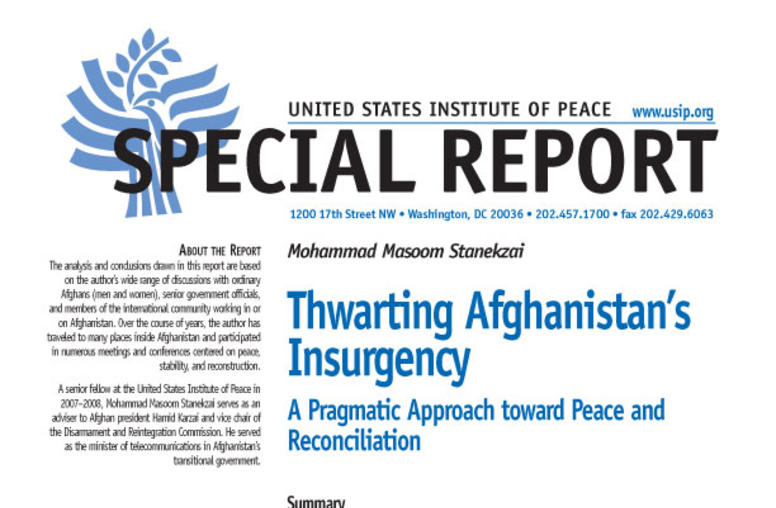
Thwarting Afghanistan’s Insurgency: A Pragmatic Approach toward Peace and Reconciliation
Afghanistan is in a crucial phase of transition. In this report, USIP's first Afghanistan fellow Masoom Stanekzai, who has interviewed a broad spectrum of Afghan senior government officials, members of the international community, and ordinary citizens in the country, shares his recommendations for a pragmatic approach toward peace and reconciliation.
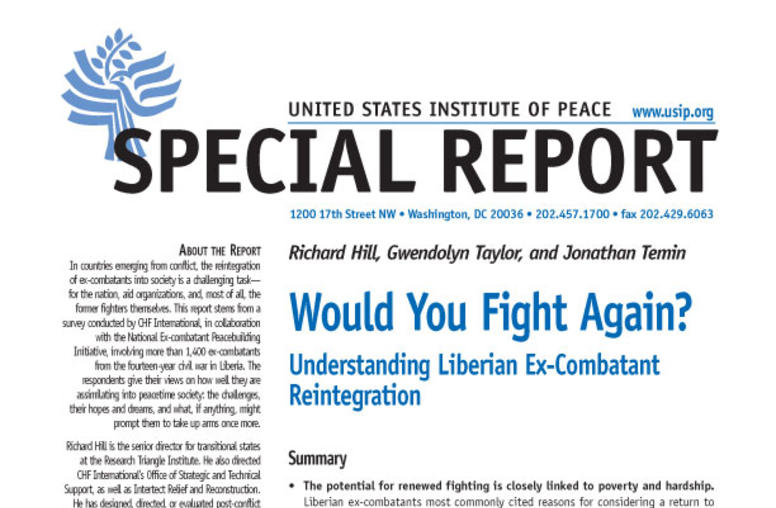
Would You Fight Again?: Understanding Liberian Ex-Combatant Reintegration
Stemming from a survey of more than 1,400 ex-combatants in Liberia's 14-year civil war, this report explores the reasons behind renewed fighting, including poverty, unemployment, peer and family pressure, gender and tribal tensions.
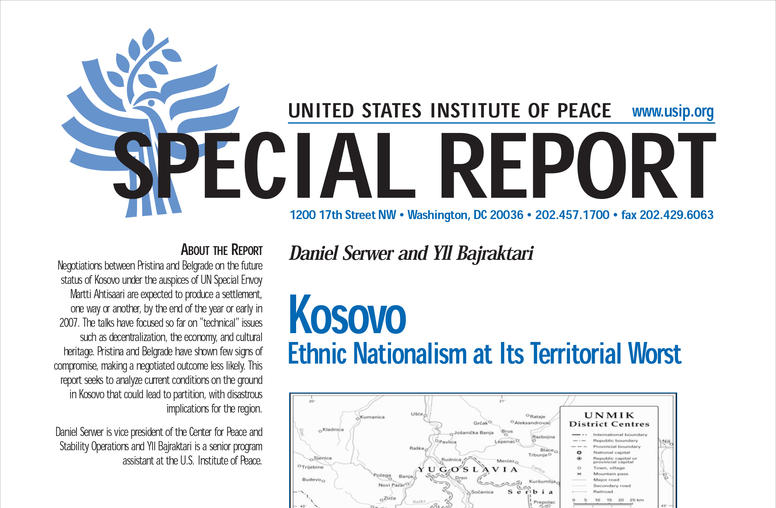
Kosovo: Ethnic Nationalism at Its Territorial Worst
Even with negotiations underway under the auspices of the United Nations, the future status of Kosovo remains reliant on the current conditions on the ground. With Pristina and Belgrade showing no signs of compromise, a partition of Kosovo could lead to disasterous implications for the region.
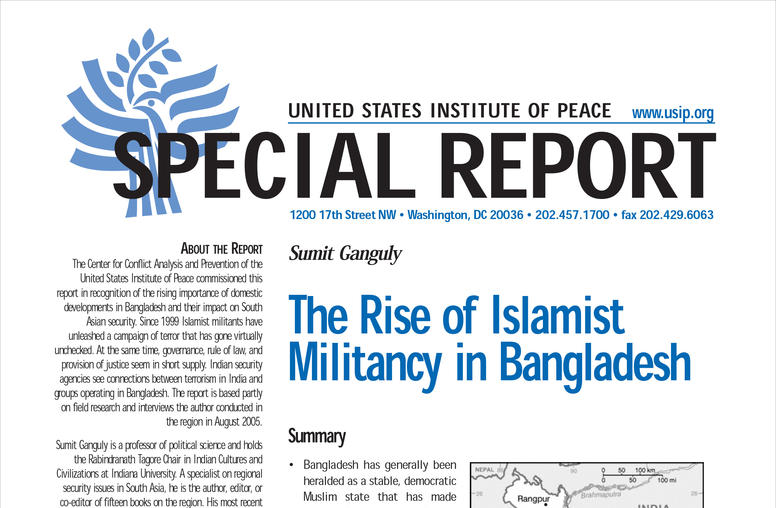
The Rise of Islamist Militancy in Bangladesh
Governance, rule of law, and provision of justice are in short supply in Bangladesh. A campaign of terror, unleashed by Islamist militants in 1999, has gone virtually unchecked, threatening South Asian security. How should the U.S. respond to the situation in Bangladesh?
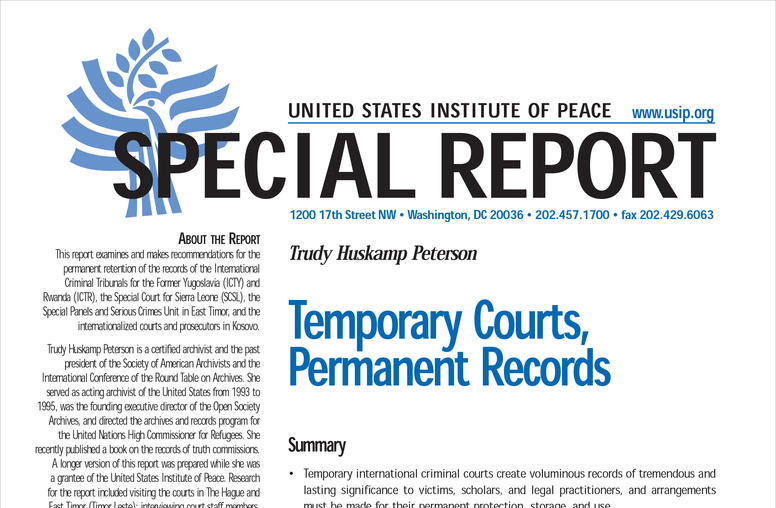
Temporary Courts, Permanent Records
Temporary international criminal courts create voluminous records of lasting significance to victims, scholars, and legal practictioners—arrangements must be made for their permanent protection, storage, and use.
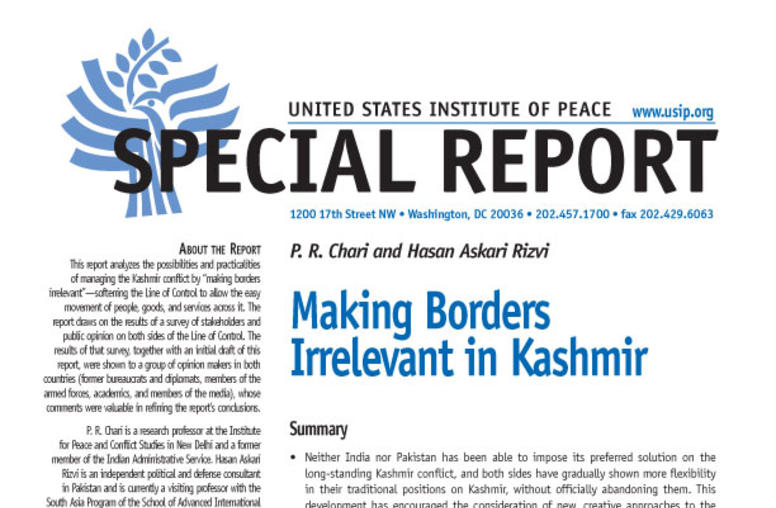
Making Borders Irrelevant in Kashmir
In this report, a duo of experts from India and Pakistan explore the prospect of "making borders irrelevant" in Kashmir through increased movement of people, goods and services across the "Line of Control." The findings draw on the results of a survey of stakeholders and public opinion on both sides.
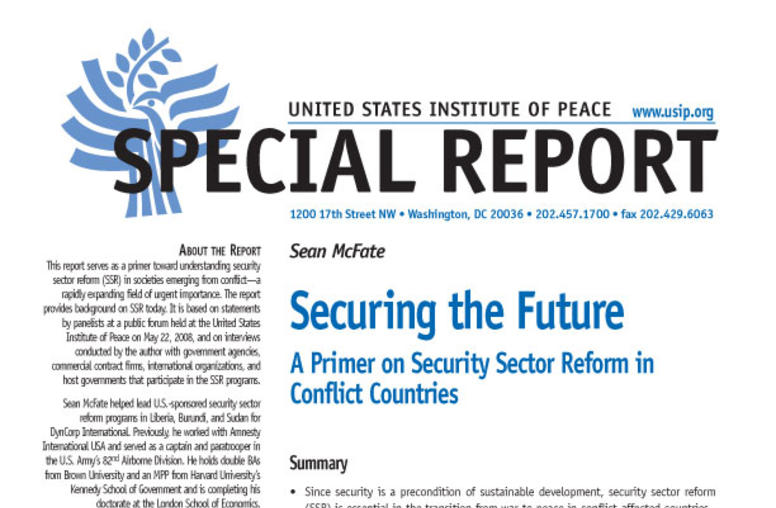
Securing the Future
Security sector reform (SSR) is essential in the transition from war to peace in conflict zones and is a topic of urgent importance. This report discusses definitions of SSR, the field's emergence, and challenges in current SSR implementation, among other topics.
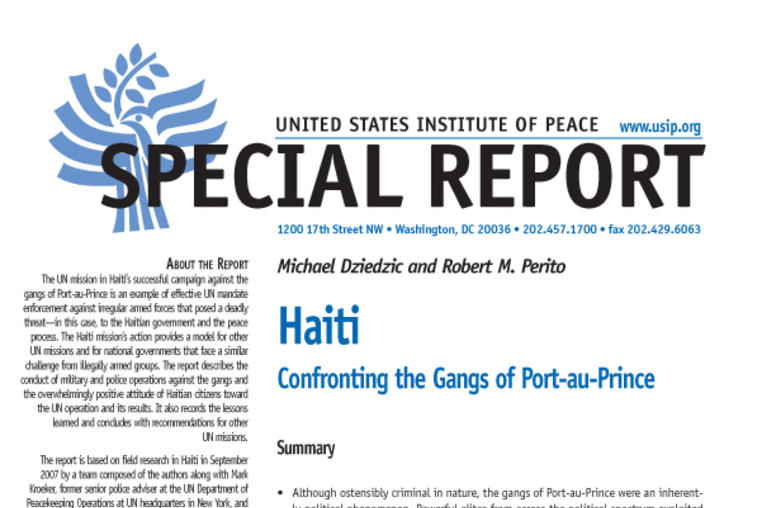
Haiti: Confronting the Gangs of Port-au-Prince
The UN mission in Haiti's successful campaign against the country's gangs set a precedent for future missions. Based on field research, authors Michael Dziedzic and Robert Perito explore the conduct of military and police operations, Haitians' overwhelmingly positive views of the UN intervention and lessons learned.
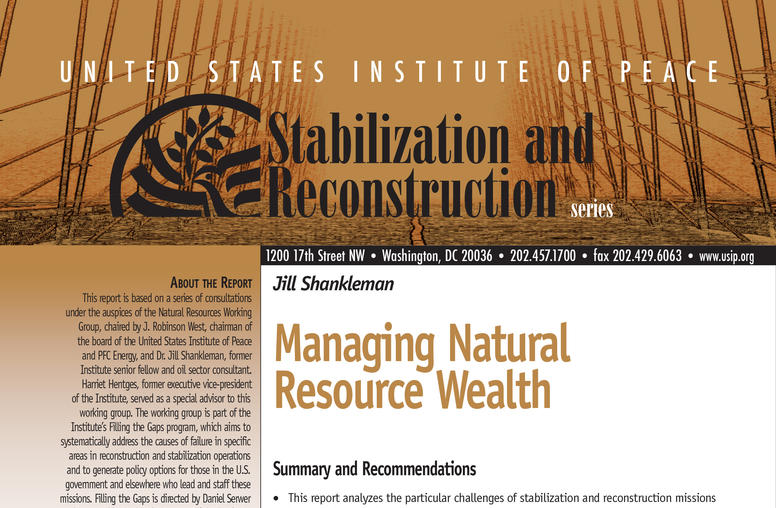
Managing Natural Resource Wealth
Natural resource-rich countries demonstrate a higher than average risk both of experiencing conflict and of returning to conflict. Jill Shankleman provides lessons from Iraq, Sudan, Angola, Liberia, and Afghanistan.